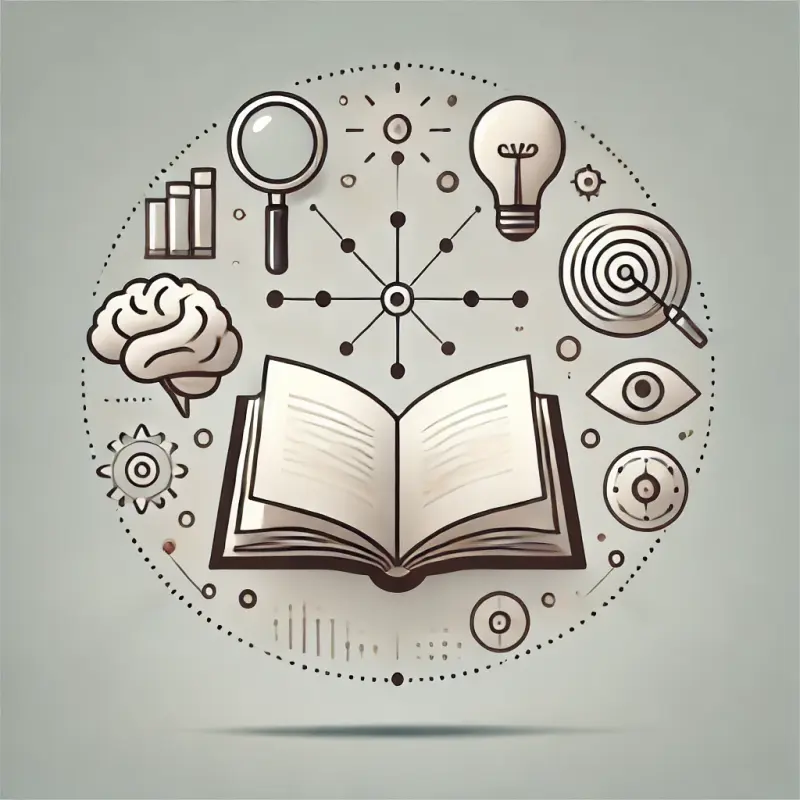The Impact of Regular Reading on Developing Analytical and Critical Thinking Skills: Tips for Choosing the Right Literature
Introduction
Reading is more than just a pastime—it’s a powerful tool for enhancing cognitive abilities, particularly analytical and critical thinking skills. Regular engagement with diverse texts helps readers develop the ability to evaluate ideas, question assumptions, and draw well-reasoned conclusions. However, the type of material you choose to read plays a crucial role in this growth. In this article, we’ll explore the impact of regular reading on critical and analytical skills and provide actionable tips for selecting literature that fosters intellectual development.
How Reading Enhances Analytical and Critical Thinking Skills
1. Exposure to Diverse Perspectives
- Reading a variety of genres, authors, and viewpoints challenges your existing beliefs and encourages you to consider alternative perspectives.
- Fiction and non-fiction alike introduce you to cultural, historical, and ideological contexts that broaden your understanding.
2. Improves Comprehension and Interpretation
- Analyzing themes, characters, and narratives trains you to decipher complex ideas and make connections between concepts.
- Non-linear plots or academic texts, in particular, demand focused interpretation.
3. Builds Problem-Solving Abilities
- Encountering conflicts, dilemmas, and resolutions in literature fosters the ability to assess problems logically and consider multiple solutions.
4. Encourages Evaluation and Critique
- Thoughtfully engaging with an author’s arguments or narrative choices strengthens your ability to assess the validity and quality of ideas.
- Writing book reviews or discussing texts with others further hones these skills.
5. Enhances Attention to Detail
- Noticing subtleties in language, symbolism, or argumentation trains your mind to focus on fine details, an essential component of analytical thinking.
Tips for Choosing Literature to Foster Critical and Analytical Skills
1. Opt for Varied Genres
- Fiction: Explore novels with rich narratives, complex characters, and moral dilemmas. Works by authors like George Orwell or Toni Morrison can stimulate critical analysis.
- Non-Fiction: Read biographies, essays, and analytical texts to engage with real-world issues and arguments.
- Poetry: Poems often require careful interpretation of language and symbolism, sharpening your analytical abilities.
2. Challenge Yourself with Complex Texts
- Choose literature with sophisticated language, intricate plots, or dense arguments.
- Examples include philosophical works, classics, or contemporary literary fiction.
3. Incorporate Diverse Perspectives
- Seek out authors from different cultural, geographical, or ideological backgrounds to gain a well-rounded understanding of global perspectives.
4. Read Thought-Provoking Themes
- Focus on texts that tackle ethical dilemmas, historical events, or controversial topics. These subjects encourage critical engagement and debate.
5. Select Books That Encourage Reflection
- Journaling or discussing your thoughts on reflective books (e.g., self-help or philosophical texts) can deepen your analytical skills.
Practical Strategies for Developing Analytical and Critical Thinking While Reading
1. Active Reading
- Take notes while reading to summarize key points or record questions.
- Highlight important passages to revisit and analyze deeper meanings.
2. Question the Text
- Ask yourself questions such as:
- “What is the author’s main argument?”
- “Do I agree with this perspective? Why or why not?”
- “What evidence supports or contradicts the narrative?”
3. Analyze the Author’s Purpose
- Consider why the author wrote the text and what they aim to convey.
- Reflect on the effectiveness of their techniques in delivering their message.
4. Engage in Discussions
- Join book clubs or online forums to exchange ideas and hear others’ interpretations.
- Debating diverse viewpoints helps refine your own analytical skills.
5. Write About What You Read
- Summarize or review books to articulate your thoughts and critique effectively.
- Writing encourages deeper engagement with the material.
Recommended Reading List for Analytical and Critical Skill Development
Fiction
- 1984 by George Orwell – Explores themes of power, surveillance, and resistance.
- Beloved by Toni Morrison – Examines history, memory, and the complexity of human relationships.
- The Great Gatsby by F. Scott Fitzgerald – Encourages analysis of social dynamics and moral questions.
Non-Fiction
- Sapiens: A Brief History of Humankind by Yuval Noah Harari – Stimulates critical thinking about humanity’s evolution and societal structures.
- Thinking, Fast and Slow by Daniel Kahneman – Explores cognitive biases and decision-making processes.
- The Sixth Extinction by Elizabeth Kolbert – Provokes reflection on environmental challenges.
Philosophy and Essays
- Meditations by Marcus Aurelius – Invites introspection on life and ethics.
- The Myth of Sisyphus by Albert Camus – Challenges readers to grapple with existential questions.
- A Room of One’s Own by Virginia Woolf – Analyzes gender and creativity.
Common Challenges and How to Overcome Them
1. Difficulty Understanding Complex Texts
- Solution: Start with summaries or guided analyses before tackling the full text.
2. Staying Focused While Reading
- Solution: Create a distraction-free environment and set short reading goals.
3. Forgetting What You’ve Read
- Solution: Review notes, write summaries, or discuss the material with others.
4. Narrow Book Choices
- Solution: Use recommendation platforms like Goodreads or explore lists curated by experts in various fields.
The Long-Term Benefits of Regular Reading
- Enhanced Cognitive Abilities: Improved analysis, comprehension, and memory retention.
- Broader Worldview: Exposure to diverse perspectives fosters empathy and cultural understanding.
- Greater Creativity: Engaging with different styles and ideas sparks innovation.
- Lifelong Learning: Regular reading builds a habit of continuous intellectual growth.
Conclusion
Regular reading is a transformative habit that strengthens analytical and critical thinking skills. By choosing thought-provoking literature, engaging actively with texts, and reflecting deeply on their content, you can unlock your intellectual potential. Start by incorporating diverse and challenging materials into your reading list, and watch as your ability to analyze and critique evolves with every page.
Artykuły
Zapisz się do naszych powiadomień, aby otrzymywać najnowsze i najciekawsze artykuły bezpośrednio na swoją skrzynkę odbiorczą!
